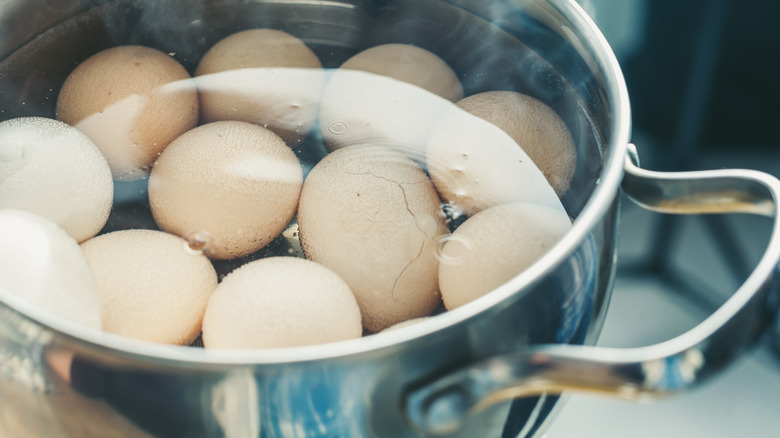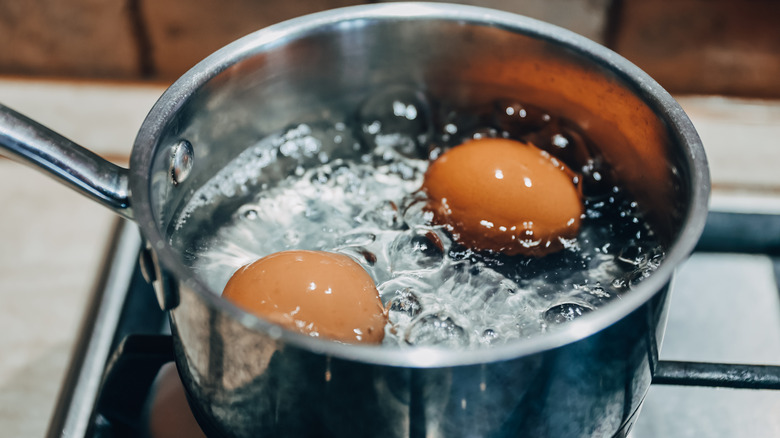The Best Way To Prevent Eggs From Cracking While Boiling
When it comes to versatility in the kitchen, it's pretty hard to beat the incredible, edible egg. This cooking and baking staple shows up not only in a variety of breakfast dishes ranging from scrambled eggs to omelets to eggs Benedict, but also lends richness to pastas and structure to baked goods.
And of all the egg preparations out there, one of the most basic — as well as on of the most widely consumed — is hard-boiled eggs. Great as a make-ahead breakfast, or snack or as a base for egg salad or deviled eggs, hard-boiled eggs are about as easy as it gets, requiring only a pot and some water. Nonetheless, there's one pitfall that sometimes plagues egg boilers, and that's cracked shells, which can cause cooked egg whites to leak out of the egg and water to leach in. Luckily, there are some handy tips and tricks to help avoid this fate.
Don't drop the eggs into already-boiling water
Hard-boiling eggs may sound fairly simple, but if you've been taking the word "boiled" in their name too literally, you might be running into the problem of cracked shells far too often. As noted by The Kitchn, the number one way to avoid cracked eggs when boiling is to place eggs into a pot of cool water (from the tap) and then bring the water and the eggs up to a boil (before dropping to a simmer) at the same time. If you drop whole eggs into boiling or simmering water, the chances are high that due to the temperature difference between the eggs and the water, the shell will crack, according to Southern Living — which is the same reason why we recommend going a step further and bringing the eggs to room temperature before boiling them.
Another tip for boiling perfect eggs with nary a crack in sight? The Kitchn advises choosing a pot that's large enough for the job: If your pot is too small and the eggs are crammed up against each other, there's more of a risk that they'll bump into each other while cooking and crack.

